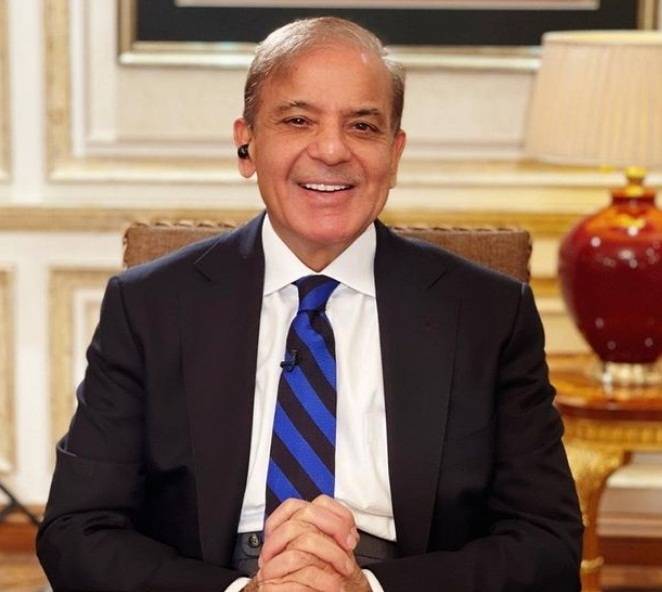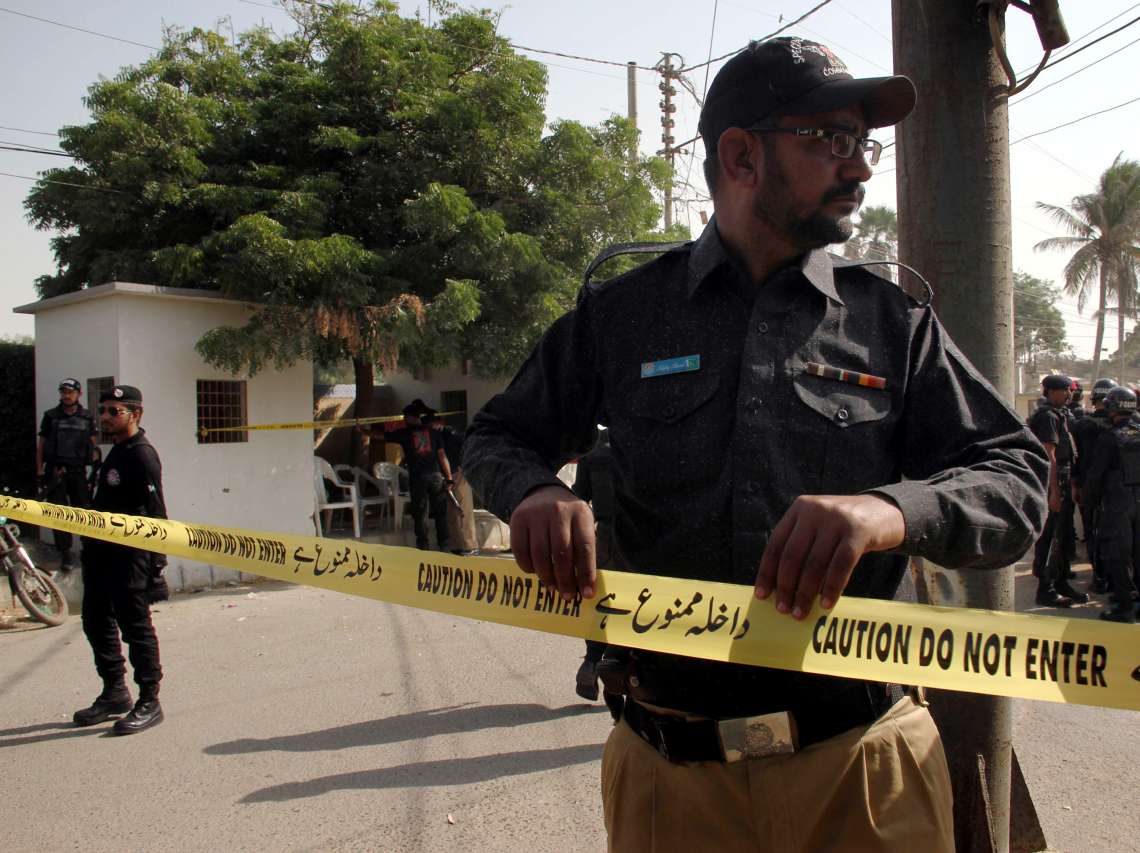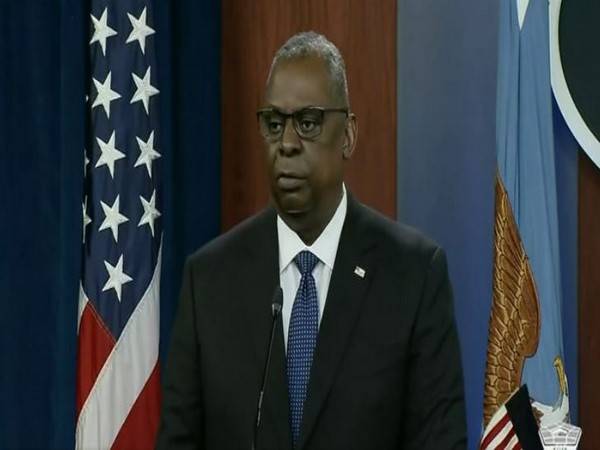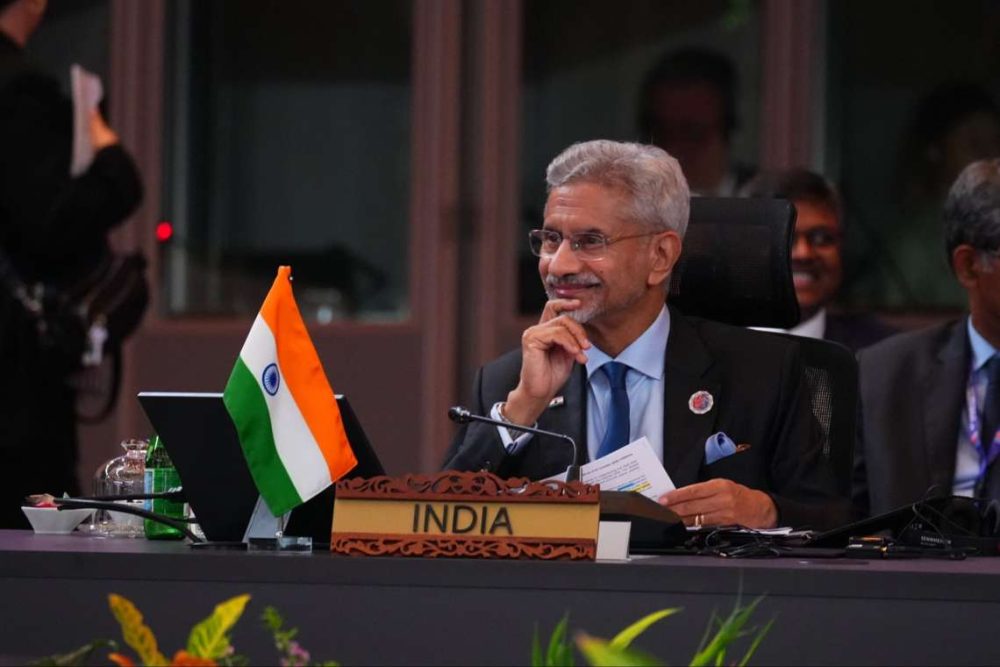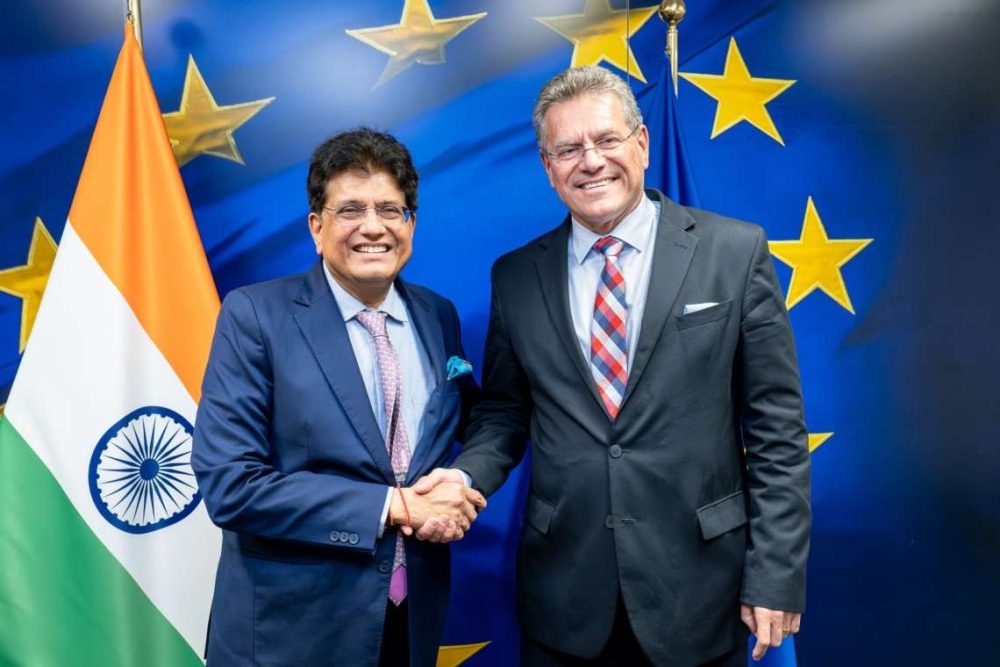PM Modi responded on Twitter, congratulating Sharif on his election and linking any engagement with Pakistan to an environment free of terrorism…reports Asian Lite News
Pakistan’s new Prime Minister Shehbaz Sharif offered an olive branch to India on Monday, saying the resolution of the Kashmir issue will allow the two sides to focus on shared problems such as poverty, though Prime Minister Narendra Modi linked any engagement to the elimination of terror.
Sharif, elected the country’s 23rd premier during a parliamentary vote boycotted by more than 100 MPs from former prime minister Imran Khan’s party, also trotted out the standard Pakistani position of raising the Kashmir issue at international forums and offering diplomatic and moral support to Kashmiris.
PM Modi responded on Twitter, congratulating Sharif on his election and linking any engagement with Pakistan to an environment free of terrorism. “India desires peace and stability in a region free of terror, so that we can focus on our development challenges and ensure the well-being and prosperity of our people,” Modi said.
Speaking after his election, Sharif devoted more time to India in the foreign policy segment of his speech than any other country, including Pakistan’s traditional ally China and the US. He was critical of the foreign policy of Khan, who was ousted in a no-confidence vote on Sunday.
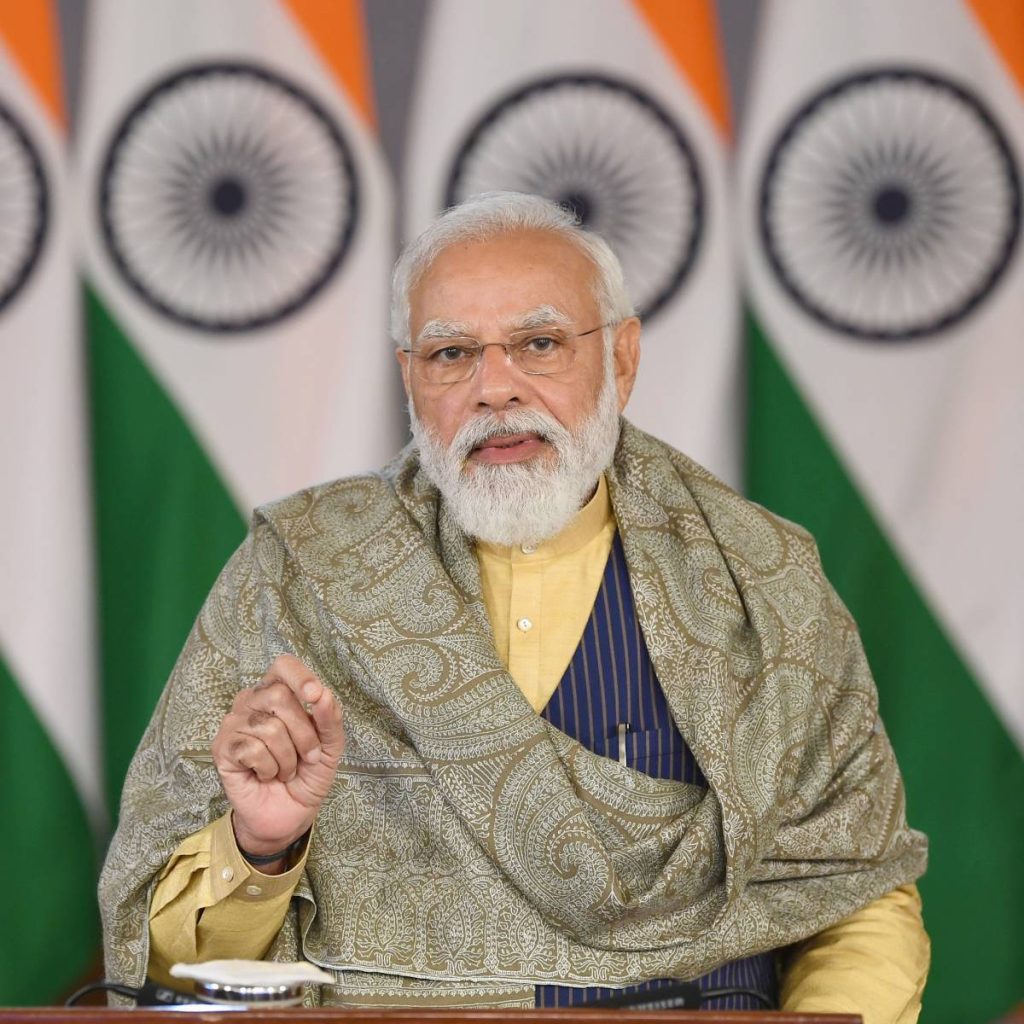
“We desire good relations with India but there cannot be lasting peace till the equitable resolution of the Kashmir issue,” the president of the Pakistan Muslim League-Nawaz (PML-N) and younger brother of three-time premier Nawaz Sharif said, speaking in Urdu.
“I would give Prime Minister Modi this advice that you should understand about the poverty, unemployment [and] sickness on both sides. People don’t have medicines, education, trade or jobs. Why do we want to cause harm to ourselves and the coming generations?” he said.
“Come, let us decide the Kashmir issue according to UN resolutions and the wishes of the Kashmiri people and end poverty on both sides and create jobs, and bring progress and prosperity.”
Sharif added: “Neighbours are not a matter of choice, it is something you have to live with.”
Sharif was backed by 174 lawmakers from parties such as PML-N, Pakistan People’s Party (PPP) and Jamiat Ulema-e-Islam-Fazl in the vote. Khan stayed away from the National Assembly and lawmakers from his Pakistan Tehreek-e-Insaf (PTI) party walked out of the House, saying they were resigning en masse.
India and Pakistan have not had any formal or structured dialogue since the 2008 Mumbai attacks by the Pakistan-based Lashkar-e-Taiba. Pakistan snapped virtually all ties and downgraded diplomatic relations after India scrapped the special status of Jammu and Kashmir in August 2019.
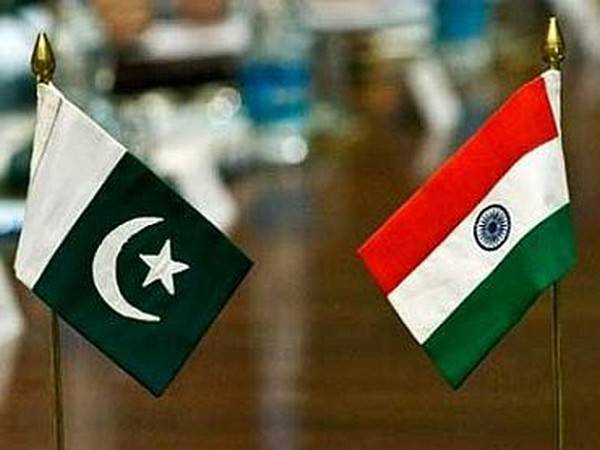
After his election in 2018, Khan too had offered to improve relations with India but there was no forward movement after the Pulwama suicide attack blamed on the Jaish-e-Mohammed (JeM). Nawaz Sharif was among regional leaders invited to Modi’s swearing-in in 2014, and the Indian leader made a surprise visit to Lahore in December 2015 to meet Nawaz but a string of terror attacks thereafter by the JeM took ties to an all-time low.
Sharif raised the scrapping of Jammu and Kashmir’s special status in 2019 and accused Khan’s government of doing little to respond to this issue. He alleged there were human rights violations in Kashmir and said Nawaz Sharif, who extended a hand of friendship to India, was the same person who made a strong speech in the UN General Assembly on independence and self-determination of Kashmiris.
“We will raise our voice for Kashmiri brothers and sisters at every forum and undertake diplomatic efforts. We will offer diplomatic and moral support, this is our right, they are our brothers,” he said.
Sharif, 70, said no one should doubt China’s role as a steadfast ally of Pakistan in good and bad times. These ties were unaffected by a change of government and China has consistently backed Pakistan at international forums, but Khan’s government had weakened these relations, he said. Sharif thanked Chinese President Xi Jinping and pledged Pakistan will speedily take forward the China-Pakistan Economic Corridor (CPEC), a flagship project of the Belt and Road Initiative.
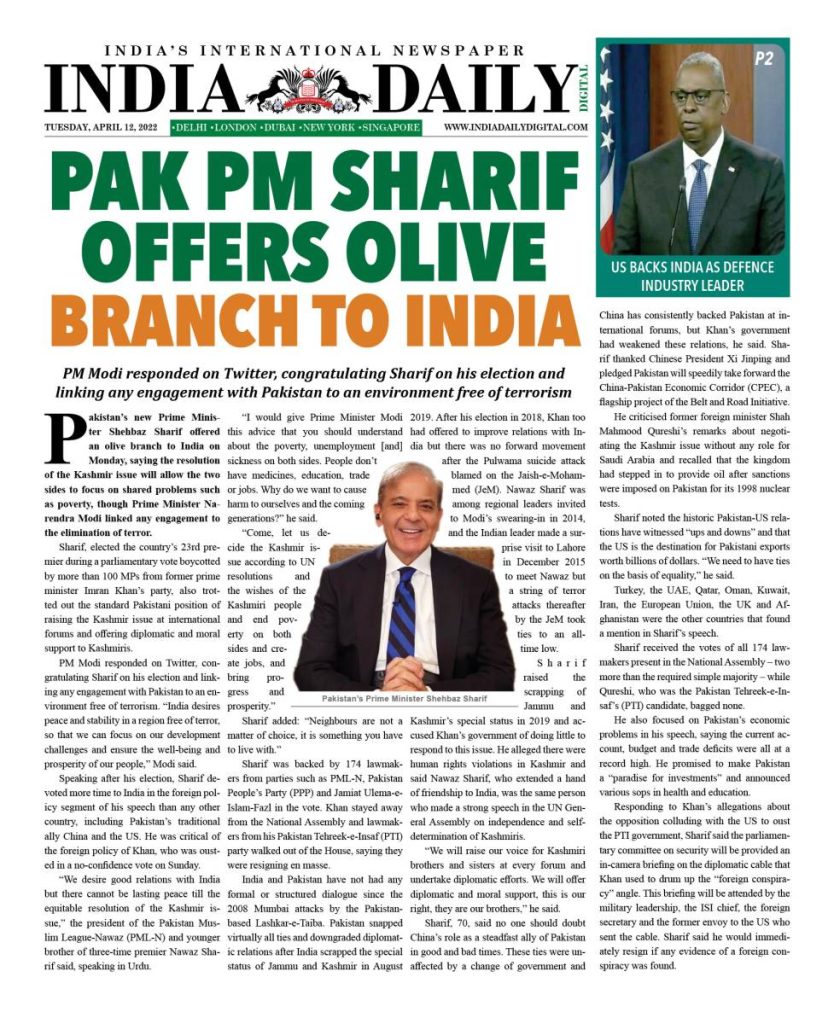
He criticised former foreign minister Shah Mahmood Qureshi’s remarks about negotiating the Kashmir issue without any role for Saudi Arabia and recalled that the kingdom had stepped in to provide oil after sanctions were imposed on Pakistan for its 1998 nuclear tests.
Sharif noted the historic Pakistan-US relations have witnessed “ups and downs” and that the US is the destination for Pakistani exports worth billions of dollars. “We need to have ties on the basis of equality,” he said.
Turkey, the UAE, Qatar, Oman, Kuwait, Iran, the European Union, the UK and Afghanistan were the other countries that found a mention in Sharif’s speech.
Sharif received the votes of all 174 lawmakers present in the National Assembly – two more than the required simple majority – while Qureshi, who was the Pakistan Tehreek-e-Insaf’s (PTI) candidate, bagged none.
He also focused on Pakistan’s economic problems in his speech, saying the current account, budget and trade deficits were all at a record high. He promised to make Pakistan a “paradise for investments” and announced various sops in health and education.
Responding to Khan’s allegations about the opposition colluding with the US to oust the PTI government, Sharif said the parliamentary committee on security will be provided an in-camera briefing on the diplomatic cable that Khan used to drum up the “foreign conspiracy” angle. This briefing will be attended by the military leadership, the ISI chief, the foreign secretary and the former envoy to the US who sent the cable. Sharif said he would immediately resign if any evidence of a foreign conspiracy was found.


